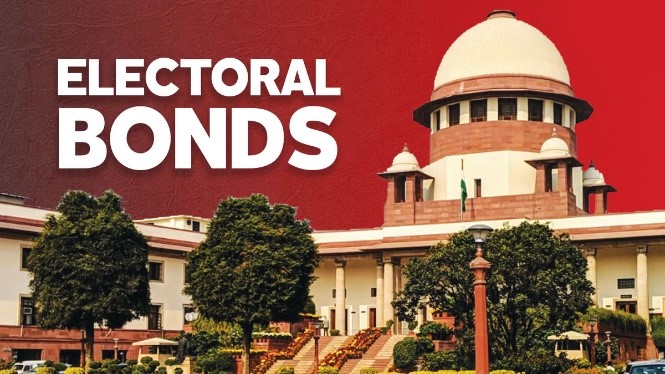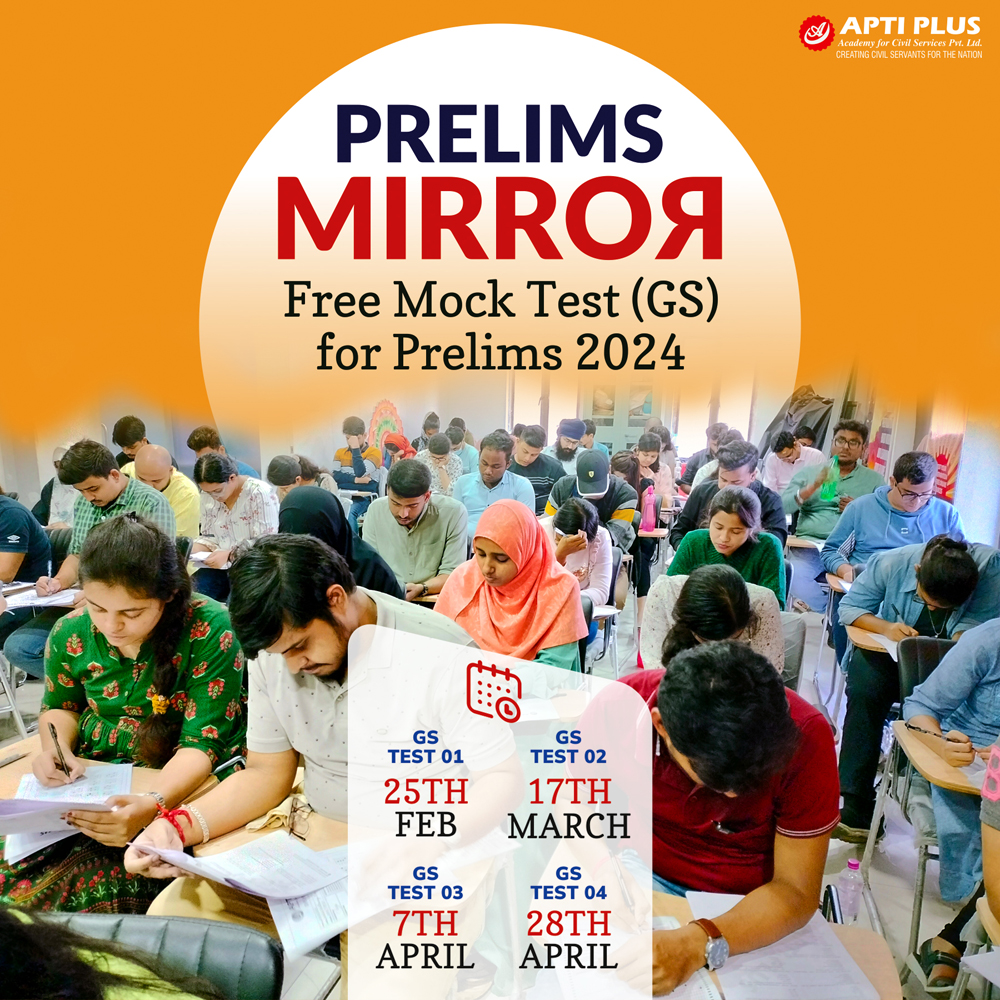Description

Disclaimer: Copyright infringement not intended.
Context
- The Supreme Court has struck down a scheme that allowed people to make anonymous donations to political parties, calling it unconstitutional.
What are electoral bonds?
- Electoral bonds are interest-free bearer bonds or money instruments that can be purchased by companies and individuals in India from authorised branches of the State Bank of India (SBI).
- These bonds are sold in multiples of Rs 1,000, Rs 10,000, Rs 1 lakh, Rs 10 lakh, and Rs 1 crore. They can be purchased through a KYC-compliant account to make donations to a political party.
- The political parties have to encash them within a stipulated time.
- The name and other information of the donor are not entered on the instrument and thus electoral bonds are said to be anonymous.
- There is no cap on the number of electoral bonds that a person or company can purchase.
- The government brought in amendments to four Acts to introduce the Electoral Bond Scheme via the Finance Act of 2016 and 2017.
- These acts are Representation of the People Act, 1951, (RPA), the Companies Act, 2013, the Income Tax Act, 1961, and the Foreign Contributions Regulation Act, 2010 (FCRA), through the Finance Acts of 2016 and 2017.
- Before the scheme was introduced the political parties had to make public all donations above Rs 20,000. Also, no corporate company was allowed to make donations amounting to more than 7.5% of their total profit or 10% of revenue.
- One of the key features of electoral bonds was the anonymity they provided to donors, allowing them to contribute without disclosing their identities. Moreover, donations made through these bonds were eligible for a 100 per cent tax exemption.

Who can receive funding via electoral bonds?
- Political parties that secured at least 1% of the votes polled in the recent Lok Sabha or State Assembly elections and are registered under the RPA can get a verified account from the Election Commission of India (ECI). The bond amounts are deposited in this account within 15 days of their purchase.
- The political party has to encash the amount within those 15 days, the amount received as a donation gets deposited into the Prime Minister's Relief Fund. These bonds, however, are not available for purchase all the time.
- They are available for a period of 10 days in a gap of four months (January, April, July and October). They are also open for 30 days in Lok Sabha election years.
Why has the Supreme Court banned electoral bonds?
- According to CJI Chandrachud, the electoral bonds scheme violates Article 19(1)(a) and is thus unconstitutional.
- Additionally, amendments to the Companies Act related to the scheme were also deemed unconstitutional.
- A five-judge constitution bench on the Supreme Court ruled that “electoral bonds” are unconstitutional and violate citizens’ right to information held by the government.
- It ordered the government-owned State Bank of India to stop issuing these bonds and provide details of donations made through them to the Election Commission of India.
- The electoral bond scheme was introduced in 2017. Before that, political parties in India had to disclose the identity of any donor who gave more than 20,000 rupees (about $240).
- But the latest instrument of political financing allowed them to declare the amount of money they received through the bonds, but not the funders’ identity.
- The Government has said the bonds have reformed political finance by eliminating the use of cash, but critics say the system is opaque due to the anonymous nature of the donations. They also say the state-owned bank has a record of donors and recipients, which makes it easy for the government to access the information and influence donors.
- From 2018 to 2023, anonymous donors have given more than $1.9 billion to political parties through these bonds, according to the Association for Democratic Reforms, an election watchdog.
- It said between 2018 and March 2022 nearly 57% of these donations went to BJP. In comparison, the opposition Congress party has only received 10%.
- Only registered political parties that received a minimum of 1% of votes in a previous election for the parliament or a state assembly were eligible to receive these bonds.
Challenges to Electoral Bond Scheme in Supreme Court:
- Right to Information: Petitioners argue it violates citizens' right to information about political parties' funding sources.
- Backdoor Lobbying: Allegations of kickbacks from corporations to ruling parties, suggesting favoritism.
- Shell Companies: Concerns that the scheme enables the use of shell companies for donations.
- Anonymity Concerns: Bonds are not entirely anonymous, leading to selective anonymity and scrutiny by investigative agencies.
- Misuse of Funds: Criticisms that the funds can be used for purposes other than elections, without accountability.
- Corruption: Allegations that the scheme protects criminals and promotes corruption.
- Unequal Playing Field: Observations that the scheme favors ruling parties and does not support opposition parties.
- Differentiation: Concerns that the scheme gives anonymity to corporate donors but not to individual citizens, potentially overshadowing citizen voices.
- Shareholder Concerns: Arguments that shareholders are not informed about how their company's donations via bonds are spent.
- Trading Concerns: Despite prohibitions, there are no effective measures to stop the trading of electoral bonds.
- Black Money: Assertions that the scheme does not primarily aim to reduce black money but reroutes funding through a new channel with added anonymity.
These arguments challenge the constitutionality and fairness of the Electoral Bond Scheme, highlighting potential threats to democracy and transparency in political funding.

SC Direction
- State Bank of India (SBI), which issues electoral bonds, has been directed to cease issuing these bonds immediately.
- As per the court's directive, the SBI must provide details of political parties that received electoral bonds since 2019 to the Election Commission of India (ECI) by March 6. Subsequently, the ECI is tasked with publishing these details on its official website.
|
PRACTICE QUESTION
Q. Critically analyze the implications of the Supreme Court's decision to ban electoral bonds in India. How does this decision impact transparency and accountability in political funding? Discuss the alternatives to electoral bonds that could ensure a more transparent and accountable political financing system in the country.
|











